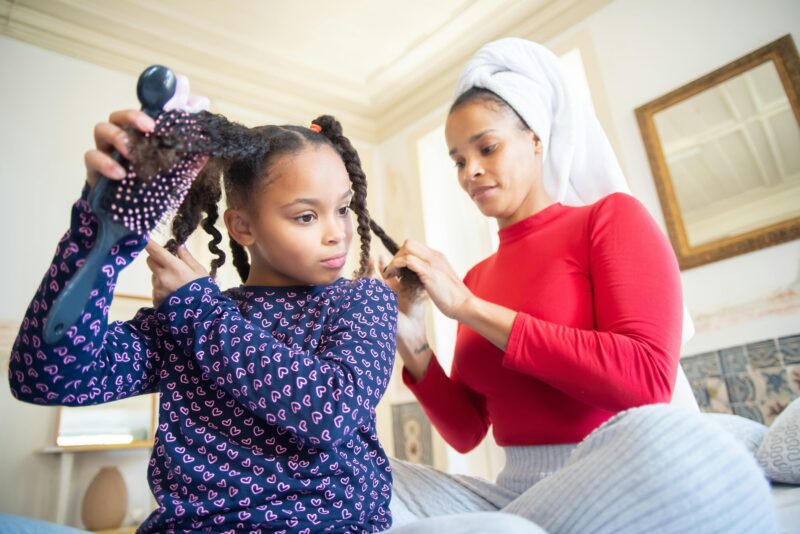Congress Targets Toxic Beauty Products Marketed to Black Women
Share
Explore Our Galleries
Breaking News!
Today's news and culture by Black and other reporters in the Black and mainstream media.
Ways to Support ABHM?
by Ezekiel J. Walker, The Black Wall Street Times

For decades, Black women have used hair care products that promised beauty—but concealed the dangers of toxic beauty products. Now, lawmakers are taking action.
Last Wednesday, federal legislators introduced the Safe Beauty Bill Package, a suite of four bills aimed at banning or regulating harmful chemicals in personal care products disproportionately marketed to Black women. The proposed legislation targets ingredients linked to cancer and other serious health issues, especially among women of color and salon workers who face daily exposure.
“Consumers deserve accountability when it comes to what we put on our bodies,” said Rep. Jan Schakowsky (D-Ill.), who authored the bills. “It’s time to close the loopholes that allow toxic chemicals in the products we use every day.”
Hidden hazards in Black hair care
A growing body of research reveals how these products have quietly contributed to health disparities. In March, Consumer Reports found that ten synthetic hair products commonly used for braids, weaves, and extensions contained dangerous chemicals—including lead, a known neurotoxin that can cause lasting developmental and reproductive harm.
“These [chemicals] don’t operate in isolation—they’re operating together,” said Tamarra James-Todd, Associate Professor of Environmental Reproductive Epidemiology at Harvard. “When people wear synthetic braids, the chemicals are sitting on your scalp, can be inhaled, or even ingested through hand-to-mouth contact.”
Compounding the problem, ingredient labels often don’t tell the full story. “It is possible some chemicals might not appear on the label,” noted Bhavna Shamasunder, an associate professor at Occidental College.
Read about the pattern of neglect that’s finally receiving attention.









Comments Are Welcome
Note: We moderate submissions in order to create a space for meaningful dialogue, a space where museum visitors – adults and youth –– can exchange informed, thoughtful, and relevant comments that add value to our exhibits.
Racial slurs, personal attacks, obscenity, profanity, and SHOUTING do not meet the above standard. Such comments are posted in the exhibit Hateful Speech. Commercial promotions, impersonations, and incoherent comments likewise fail to meet our goals, so will not be posted. Submissions longer than 120 words will be shortened.
See our full Comments Policy here.